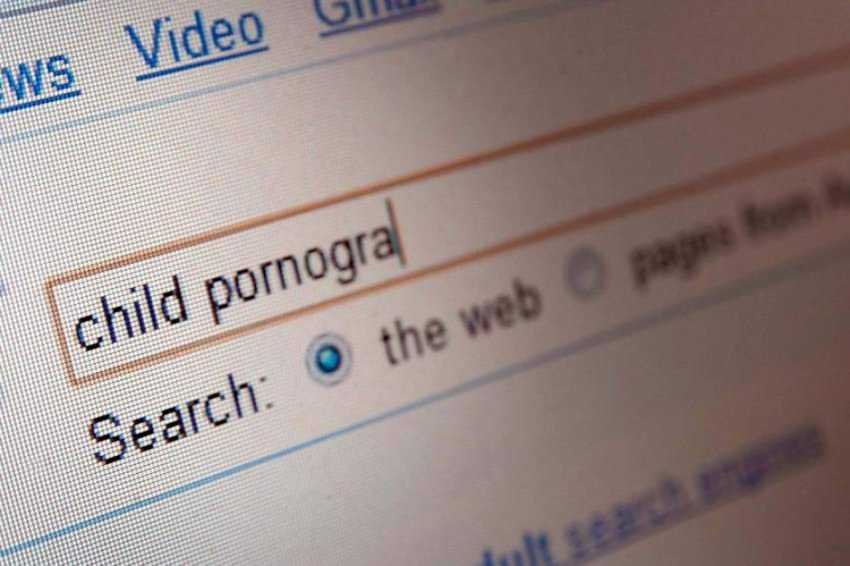Child pornography: Two words that make you cringe. We hear them, however, very often the latter space, since it seems that the restrictions of the quarantine intensified the already insatiable appetites of pedophiles who... spread their nets further and further, in the real world as well as in the digital world.
What do they really mean? Who are hiding behind them? What should we as parents know about them and how will we protect our children? We had a very interesting conversation with the ethical hacker Cyberkid (Anastasi Vassiliadis), who deals specifically with the safety of children on the internet, and it makes sense to hear what he has to say…
First of all, tell us how you decided to deal with child safety issues on the internet?
Taking on the whole range of issues related to internet safety, safety information for children could not be missing. The involvement of parents in their children's use of the internet is in most cases non-existent. So someone has to take over this part as well. Many parents have very limited knowledge of computers and the internet. Possessed by a phobia of using it technologywhich often results in indifference.
How exactly does the child pornography ring work, how "bad" are things in the Greece; Ποια είναι η παρουσία της χώρας μας στο dark web;
Most of the time, the perpetrators are presented as children in forums and chats related to video games in order to attract their victims more easily. They try to gather as much information as possible, with the ultimate goal of coming across it. There are, however, other cases of pedophiles, who approach children in parks with the attack "Your mom asked me to take you home" or "Do you want to become a model?" and so they manage to win them. Fortunately in our country the activity in this field is not so intense regarding the dark web. We have not had such cases in the past from Greek pedophiles and I hope they do not exist in the future.
In your experience, what are the most common and dangerous mistakes parents make? After all, is it so bad to post photos of your kids online?
A common problem identified by parents is the lack of boundaries in their relationship with their children. A category of parents is created, the so-called "weekend parents", who due to the fact that the rest of the days of the week have not devoted quality time, those two days they will spend with their children, due to regrets, allow them anything by opening thus paving the way for an uncontrollable situation which includes internet addiction. Posting photos of your child is not a bad thing. The bad thing is that all his online friends know at any time what he is doing and where he is. His daily schedule and all his activities. In this way the child becomes an easy victim.
What dangers threaten adolescent users?
The dangers are many with the most important being the addiction to playing online games. Even online gambling, as well as social networking sites, where young people today spend a large part of their day on social media, as they now consider it the new way of communicating and having fun with their friends and strangers.
Do you cooperate with the police? Do you help to "expose" the traffickers of pornographic material? Tell us about the "journey" of such a photo.
I have previously worked with cybercrime prosecutors in the area of child pornography, discovering some people who trafficked photos and videos with minors to one of Tor's most popular pages. These people did not seem to know how to hide their traces and it was only a matter of time before they were arrested by the authorities.
As for how pedophiles work online, the rule is that they either find online photos of children or enter into children's chats, present themselves as teenagers, and after becoming "friends" ask for nude photos of themselves. With these they then blackmail the children, asking for money.
Alternatively, with the pornographic material they enter various websites of such content, usually in Tor, create an account and start "uploading" it, for the food of other pedophiles.
How is raw pornography produced, however? There is a case e.g. to grab a child just to photograph or videotape him in obscene poses?
I have never heard of a kidnapping for the purpose of obscene photography. I have heard about selling a child or his organs, but not about photography - after all, what does that mean? The child will not speak later?
In most cases, obscene material is produced by the parents themselves who photograph their children. From time to time we have had such incidents in Greece. They photograph them naked (at best) and then sell their photographs. They do it either for money or to satisfy their anomaly. However, most child pornography sites charge money to upload such material.
What do parents need to know to protect their children?
Parents should first devote time to their children. Be by their side and watch their every move. Watch them discreetly, so that at any time they can intervene if their child needs help. Their children should not argue in the slightest, so that the child himself feels comfortable talking to his parents if something is bothering him or bothering him. Be honest about parental control.
To talk openly with their children about its dangers Internet. To set their limits regarding the daily hours of children's activities, in front of her screen their mobile phone or computer. If they follow these small and other very important steps, they will greatly reduce the risks to children online.





